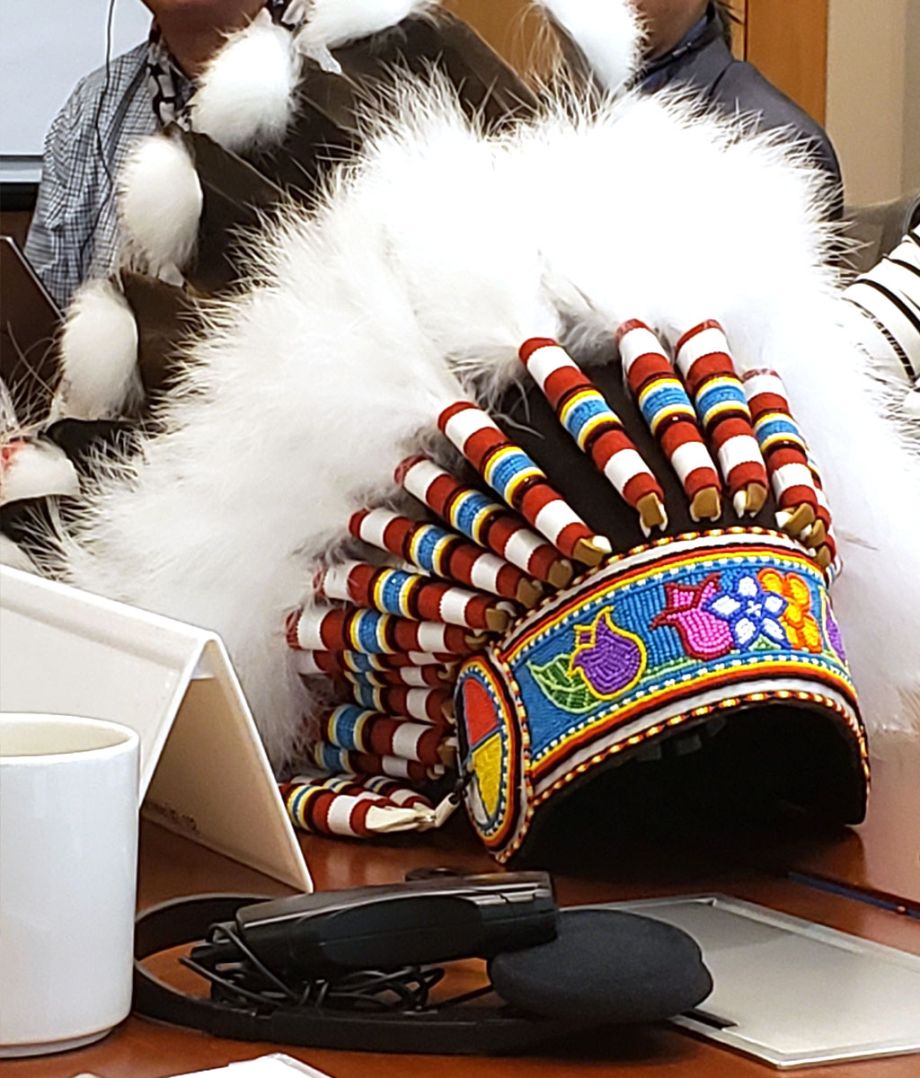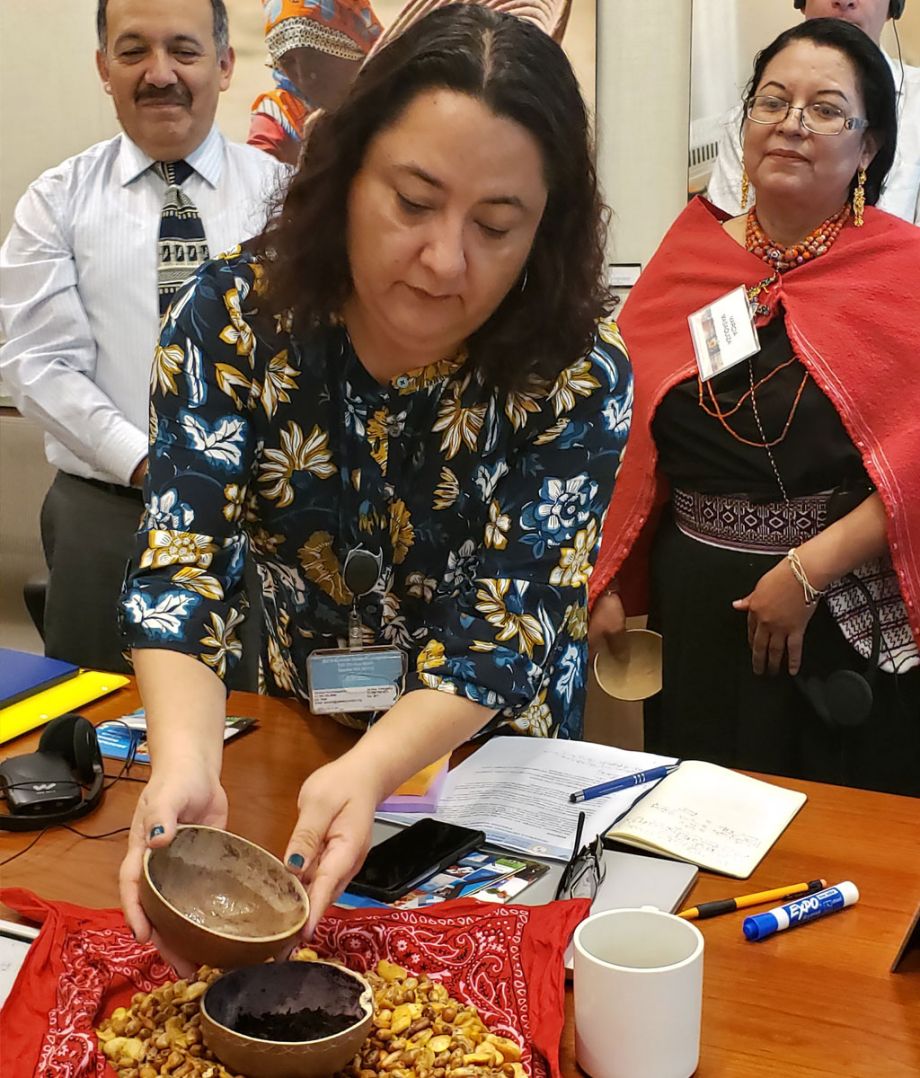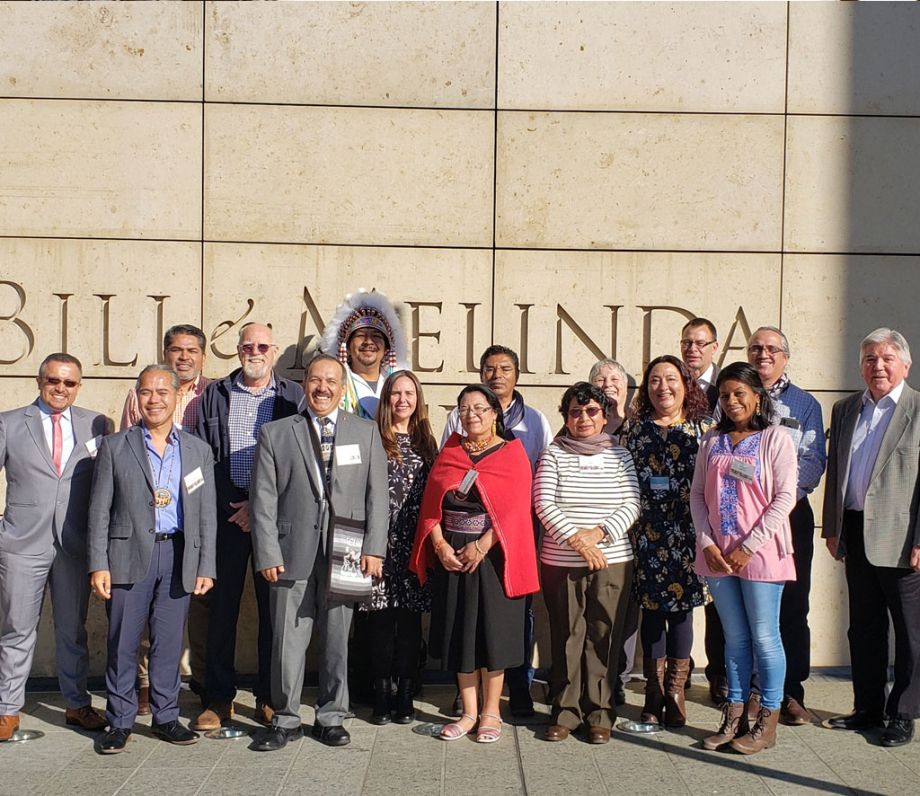Indigenous Knowledge and Disaster Risk Reduction Network
Network Activities
Network Activities

Pan American Health Organization (PAHO)-sponsored Hemispheric Consultation on Indigenous Peoples and Disaster Risk Reduction, Canada, 2014
On 11-12 September 2014, 20 participants from ten countries throughout the Western Hemisphere gathered in Vancouver, British Columbia, Canada, for a consultation about advancing health disaster risk reduction and resilience in Indigenous communities. This meeting was organized by the Department of Emergency Preparedness and Disaster Relief at PAHO, and co-hosts included the Pacific Northwest Border Health Alliance (PNWBHA), the Northwest Portland Area Indian Health Board, the First Nations Health Authority, the Washington State Department of Health Office of Emergency Preparedness and Response and the Musqueam Indian Band on the Musqueam Reserve in Vancouver, British Columbia. The consultation was one of the first of its kind in the region, bringing together disaster risk reduction professionals and Indigenous delegates to discuss strategies to reduce disaster risk in Indigenuos communities, while taking into acount their voice, experiences and knowledge. This discussion was focused on sharing knowledge and understanding of disaster risks throughout the region and faced by Indigenous peoples, in addition to providing a space for Indigenous populations to share their accumulated experience in establishing resilience toward disasters and develop culturally sensititve tools to reduce disaster risk. The formation of the Indigenous Knowledge and Disaster Risk Reduction Network is partially attributed to the thoughtful discussions that resulted from the Hemispheric Consultation. More information on the takeaways from the consultation can be located here.

Consultation to Integrate Indigenous Knowledge in Disaster Risk Reduction, Mexico, 2018
In August 2018, disaster risk management professionals gathered in Mexico City, Mexico with Indigenous peoples and Indigenous leaders from Canada, Ecuador, the United States, Guatemala, Honduras, Mexico, and Peru, to discuss the integration of Indigenous traditional knowledge in disaster risk reduction for health. The working group spent the day reviewing the foundations of an initiative to integrate Indigenous traditional knowledge and knowledge of disaster risk reduction. The group determined that to successfully catalyze such knowledge sharing, the initiative would require establishing a regional network with experts who can share information on disaster risk reduction and Indigenous knowledge. The meeting also incorporated several exercises, including testing innovative ‘mirror scenarios,’ where participants identified critical aspects of disaster risk management where the health sector needs to adjust and adapt to improve interventions to guarantee the well-being of Indigenous populations. More information on the consultation can be found here.

Indigenous Knowledge in Disaster Risk Reduction Network Strategic Planning Meeting, Seattle, United Stated, 2019
In October 2019, PAHO and the the Bill & Melinda Gates Foundation co-hosted the working group that had been meeting regularly to conceptualize the Indigenous Knowledge in Disaster Risk Reduction Network, along with other indigenous leaders and disaster risk professionals to kick off the planning phase of the new network. This meeting had the following objectives:
- To officially launch the pilot phase of the Network
- To develop the strategic plan of the Network and road map of key activities, establishing a definition of success and a sustainability plan
- To formalize the commitment of individuals and organizations who are currently actively engaged in the development of the Network
Over the course of 2 days, participants learned about other networks or similar initiatives and success experiences and practices integrating indigenous knowledge in health and disaster risk reduction. This served as the foundation to look forward and collectively build a plan that led to the formal creation of the Indigenous Knowledge in Disaster Risk Reduction Network.
At the event, Dr. Ciro Ugarte, Director of PAHO Health Emergencies Department, officially launched the Indigenous Knowledge in Disaster Risk Reduction Network.
